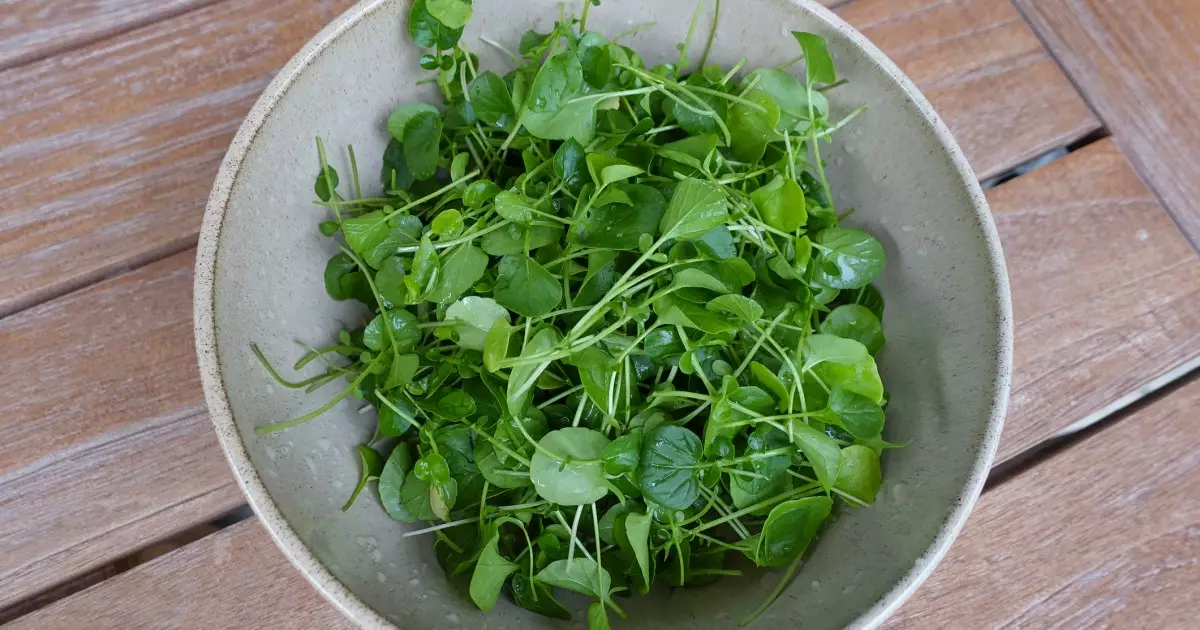In the complex world of canine nutrition, not everything considered healthy for humans holds the same beneficial properties for dogs. One such example is watercress, a leafy green that some might think is harmless due to its nutritional value for people. However, when it comes to our furry companions, the short answer is clear: watercress is not a safe choice. Despite its lack of severe toxins, this aquatic plant can cause substantial digestive distress in dogs, making it essential to keep it off their menu entirely.
Watercress, scientifically known as Nasturtium officinale, may not be classified as extremely toxic by experts, but it’s crucial to understand that even small quantities can lead to gastrointestinal upheaval. Vets often emphasize the importance of being cautious with this plant, as it does not align well with a dog’s digestive system. If ever in doubt, consulting a veterinary professional is the best step; they can offer the most reliable information tailored to your dog’s health needs.
Understanding Watercress and Its Impact
Originating from the waters of Europe and Asia, watercress has made its home in various regions across the United States and Canada. As a potent flavor enhancer, you may find it in some human dishes, and occasionally, a minuscule amount might be included in dog food. However, the trace amounts present in commercial dog food systems do not pose the same risk as whole plants fresh from the garden or wild.
While the ASPCA classifies watercress as mildly toxic, that classification is an oversimplification of a more nuanced problem. Too much watercress—even a small handful—can lead to severe digestive issues such as vomiting, diarrhea, and nausea. What’s worse is that watercress often grows in aquatic environments, which can harbor a variety of pathogens. When consumed, these pathogens can lead to infections, including those from liver fluke parasites and bacteria, elevating the potential danger to your dog.
Wild Encounters: The Risks of Foraging
The threat of watercress extends beyond domestic spaces; if your dog roams in nature, it can unknowingly consume this harmful plant. The dangers are particularly pronounced for pets enjoying lakes, streams, or marshy areas. Watercress can often be mistaken for harmless aquatic foliage, and it’s crucial for dog owners to remain vigilant in these environments.
Besides watercress, dogs in such areas might also encounter deadly plants like water hemlock, as well as the notorious blue-green algae. These toxic threats significantly complicate the question of what is safe for dogs to ingest while frolicking in nature. Monitoring your dog’s actions, especially after swimming or playing around water bodies, is vital. Symptoms that develop post-play, such as gastrointestinal distress, are red flags prompting immediate veterinary intervention.
Prevention: Keeping Your Dog Safe
Practicing good prevention is essential for protecting your dog from watercress and other environmental hazards. Educating yourself about local flora can save you from potential veterinary emergencies. If you live near bodies of water, it’s prudent to familiarize yourself with common aquatic plants, including recognizing harmful varieties like watercress and water hemlock to keep your dog from unwanted consumption.
When cooking with watercress at home, make certain to store it securely and away from where your pet can reach. Sharing meals or scraps that contain this plant is a risky gamble you should avoid at all costs. The health implications for dogs, particularly those with compromised immune systems, can lead to devastating outcomes affecting their kidneys and thyroids, among other health issues.
While watercress may appear innocuous, it harbors risks that pose a significant threat to canine health. Observing dietary restrictions and maintaining an awareness of surroundings can safeguard your beloved pet from these hidden pitfalls. Whenever in question, don’t hesitate to consult your veterinarian for personalized guidance on dietary choices and their potential ramifications for your dog.

